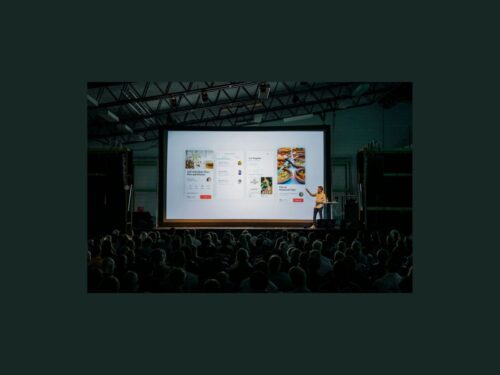City aims to become world leader in social innovation alongside its academic, life sciences and tech prowess A new...
Member spotlight – Hill Coaching Company
We caught up with Oliver Hill from Hill Coaching Company to learn more about his approach to culture and leadership training within the tech sector.
Hi Oliver. You describe yourself as a ‘business booster’, so tell us, what does this entail? Can you tell us about your journey up to this point?
My career spans two areas. Hill Coaching Company has existed for 3 years now. Before that, I worked in the public sector for a long time. I got to senior project management level, where I was responsible for quite a few teams. At the time, I found the way that I managed was quite effective. I was a bit of a tyrant, really, so I would feel fairly confident in my decision-making. If people were with me, that was great, and if they were against me, I would look to axe them. I assumed that was good management.
Then I came across a tool called ‘CliftonStrengths’, which you may have come across by its previous name ‘StrengthsFinder’. It blew my mind. I had done plenty of those tests before, DiSC and Myers Briggs and so on, and none of them really stayed with me. But this report highlighted that my approach to managing people wasn’t the most effective. It wasn’t suggesting that I was failing. It was calling into question whether I had been productive, efficient, effective. I suddenly realised I hadn’t and that hit me quite hard.
I spent about 3 months arguing with myself in my head about the report and thinking it must be a load of rubbish, but ultimately found that it was pretty much me in a nutshell. When I started to ask other people whether they thought the report was a fair reflection, they confirmed my worst fears. I began to realise that there are better ways to manage – and that shouting at people and telling them what to do is a really, really poor way of managing.
I started to dabble with this tool myself within my project teams and it was so powerful. When I was using this assessment, it would pull out people’s natural talents in a report and then encourage you to focus on these talents. It made it much easier for me to communicate my wants and needs, and vice versa, people found it much easier to communicate why they needed certain things. It made me realise why I found people very frustrating and why we didn’t click or get on. It was transformational.
Then there was a change in direction in the public sector, so I decided now was as good a time as any to move away from that. I got involved in our family businesses. The most notable one is a big retail company called Angling Direct. I experimented with using my new understanding of how to engage people, and it really worked. I realised I had built up a lot of experience, bringing my approach from a large organisation with hundreds of employees, to working on projects with small teams of 3 or 4, to working with companies that have anything from 40-350 staff. I thought, you know what, this is what I want to do.

It is always a difficult transition from theory to application. There is some fantastic literature out there. Still, people read it on the train and then it goes back on the shelf. How do you get people to take up these new insights?
The problem is not having the information; it is what you do with it. How do you find the most useful information and how do you take action from it? This is where I come in as a business booster. If you look at what you already have got within your business and how you run it, you can easily get a boost by implementing information that is readily available. For example, using things like CliftonStrengths, you have to ask, how can I make sure that that happens, rather than just reading it and thinking “that’s a great idea, I’ll do it tomorrow” and then tomorrow never comes. That’s how someone like me helps boost your business. Nothing I bring is particularly new. It’s all freely available, but the vast majority of people and businesses are not taking advantage of it, because they don’t really know where to start.
Training is one of my big bugbears. The content is usually really well delivered. The people that deliver training are normally experts in their field, or at least expert deliverers of the training. The challenge is the aftercare. If you are going to have a successful operation to fix something, the chances are that you will get physiotherapy or aftercare or medication. It’s no different with this sort of thing. If you go and have an amazing training, how are you going to implement it? Businesses are spending tens of thousands of pounds on training and then spending no time to ensure it is implemented. To me, that doesn’t make any sense.
How do you connect with businesses? Is it primarily through HR directors and managers, or more junior staff?
There can be several ways in. HR is clearly one of them, but they can be big blocks as well. It really depends what sort of HR department you have and how open they are to it. Ordinarily, the change comes from the top. They recognise there is a challenge, a problem or a frustration. Often, we find that the business has grown to the extent that it can no longer be micro-managed. That is never ideal anyway, but when you get to a certain size, the 15-20 staff point, that’s the first time that leaders start to realise that they are struggling to stay on top of things. That’s when you start to find that micro-management is not the way forward, and you have to reverse-engineer a culture.
Another way is through people who are starting a business, who are technically very competent in their space, but they are aware that they will need people along their journey. And occasionally an individual within an organisation strikes up a conversation with me and we arrive at a plan.
In your mind, who is your ideal client? You’ve joined Tech East, does that mean you are focused on the technical and digital sector?
I am really attracted by the tech sector because it has the potential to make a massive impact. I don’t mean just within the companies, but in the world. That is why I reached out and joined Tech East in September. There is so much quality out there, so much talent and people doing good stuff. But in this sector, communication can be a problem, due to the types of people you get. You come across geniuses who are technically outstanding in what they know. But often, their ability to communicate that to their staff, teams and resources and potential clients, is a pain point.
I worked with one company, Spicule, who are Tech East members too. They’re a great example. The director, Tom Barber, is an absolute genius in his field. He is a specialist data analyst, who works for the likes of NASA in the US, although he’s based in England. But the issue is, how does he explain what he can do to a) the team that is working for him and b) the prospective clients who might not even know that he exists? How does he communicate what he can do for them to resolve their data issues? They often don’t even realise that they have data issues! I was coming across more and more of these cases and I thought, well, hang on a minute, I can help people communicate.
When Tom gets on a roll, often I haven’t got a clue what he is talking about! But this is the point: if I can’t understand it, then most of your target market won’t buy it. Budget makers and decision makers aren’t going to buy it, because no one likes to look silly. They won’t reach out to someone who is going to make them feel insecure about themselves. You need explain the ‘why’ to them. Why is this valuable to me? And the best way to do this is to create a culture that helps people in content marketing and communication tease out that information. I am focusing a lot of my efforts in this sector because I feel I can help them do this, which will help people and businesses make real change. And by the way, Spicule are now smashing it. Tom brought me in to help his number two, Stephen Downie, get what’s inside Tom’s head down into written form. This is an ongoing challenge, but they are succeeding and now they are flying!

Are there any specific services or products that have your focus at the moment?
The first theme is leadership. The vast majority of people in management and leadership positions didn’t necessarily ask for it, nor have they had any particular training. Gallup, one of the companies whose tools I use, released a recent survey where 78% of people said that they have a really bad experience with their managers. So, one of the things I do is work with leaders and managers, and especially people new to management.
I help them understand how easy it is to be an effective manager, how easy it is to care, how easy it is to get what makes certain people tick. Firstly, this is simply through coaching conversations and teaching people how to be coaches. As a leader, you are coaching every day, because people are learning from you. If you can learn to understand how you can make that effective, then you will be a very strong manager.
I use various tools. I have mentioned one already, Clifton Strengths, which helps you unlock peoples’ natural talents. I come in and explain that to people and talk them through the report. I help them ‘aim it’, so to speak, so that those talents are used. We can do that within a team and ultimately as a whole organisation, so everyone is working on what they do best every day. People working with their strengths are more productive, they talk about working for a great company, they become ambassadors for your organisation. Productivity levels go up. It’s a very positive experience all round.
Does most of your work come from Norfolk and East Anglia? Is that a good hunting ground for you, or do you operate more widely across the UK?
I would love to say that 100% of my business is in Norfolk and Norwich, but it is not. I have some London clients, simply because as much as I love this area, my business still creates bills! I find the London markets are more immediately open to this approach and the sell in Norwich in particular has been more of a challenge than I had anticipated. I am now 3 years in, and I am beginning to work out how things tend to unfold. I have managed to uncover some amazing businesses that keep themselves very quiet in the Norwich area, whilst doing fantastic work.
Ultimately that is where I want the business to be, because I am passionate about Norwich. I was born here, moved away, and came back. Now, I am a season ticket holder at Norwich City! I came back because I don’t find anywhere else in the UK quite like Norwich. I often use the football club as an analogy. We often struggle to attract players to the club, but when they come, many of them settle down here and never leave. That’s Norfolk and Norwich in a nutshell. Once you come, it is a great place to live, it’s an amazing culture, and there are incredible businesses within the city. It would be perfect for me if 100% of my business was being done in Norwich. That is the intention, but at the moment, I would say the split is 60% Norwich, 40% London.
That is a response we hear across the region. The lifestyle is a draw, and there is always that balancing act of having reach out to areas like London for work. Ultimately, though, there is a culture and a lifestyle towards the east coast that is worth pursuing.
Absolutely. In my particular sector, if more businesses were open to it, they would see they are able do business outside of London just as effectively as inside of London, but for half the price in terms of costs. There are so many reasons to come here – Ipswich has a really proactive tech scene. I love the county of Suffolk and there are some amazing things going on there. We are not a million miles away from Cambridge either. Working with Londoners and other big city dwellers, when they see the quality of life and the amazing business opportunities that are there, it’s a big eye opener.
That’s why Tech East appealed to me, because anything that promotes that fact is good in my eyes. There are too many organisations that claim to be representing certain areas but aren’t creating opportunities, they just seem to make a lot of noise. The thing I like about Tech East is that they are very clear on what they are there for: focusing on the tech sector. I like the idea of more organisations looking to do that. Then they can work collectively for the greater interest of the region. Let’s have specialisms, so we can actually pull everyone together rather than saying: ‘come to Norwich, it’s amazing’ or: ‘come to Ipswich, this business is doing great here.’ We need to tell them why. I hope to see a shift with Tech East coming into play and working with people like me. I am saying ‘why should people come and work with you?’, instead of focusing on what is there. In the tech sector everybody knows what they are and what their skill set is, but you need to be able to communicate that ‘why’ both internally and externally.
What have you taken away from your time at data company Spicule?
I am having a great time with Spicule, helping them to realign what they are doing. I found out how much data was out there, and that people don’t understand how much data they have. Anybody who keeps any form of information needs to have a think about what they are doing with it. People who have data and are just storing it, putting it in AWS for example. They need to have a think about that, because it is costing them a fortune and what are they doing with it? What information have they got that could really impact their business in the future? People like Spicule don’t just come in and ‘do data.’ They can do a review, they can audit it, they can make recommendations, they can give you an idea of what you could be doing if you have data. So many businesses are missing a huge trick here.

Your own sector, leadership and culture, can be perceived as woolly and abstract – do you try to underpin that with data? You have tools and models in place, but is data an important linchpin?
I now realise that when I get these assessments, it is so important that I do it the way I do, using a system like Gallup. All that data goes into a central location and I can then bring out all the supporting information in the form of charts and dashboards. We can track it quickly, the decisions we make, the changes we make, the appointments that are made. We can demonstrate how that is affecting product lines and productivity and profitability. That then helps build a case for the work that we do, because it is quite a hard sell!
To people that aren’t doing it already, it doesn’t seem like a great idea. People say: ‘it sounds nice on paper, but we are different and that won’t work for us.’ I encounter that attitude quite a lot. The more that I can back my work up with facts and stats that are my own, the more powerful it becomes.
How has your service offering evolved?
I think I finally know what I want to do. If I am perfectly honest, the last 3 years have been about trial and error in some respects. I now have all these tools; I have all this knowledge. I have a very clear model to help people on a one-on-one coaching basis. I am also very clear on how I can help people create the sort of culture that companies need. Again, I must stress, I don’t come in and say: ‘you must make your culture like this.’ What I do is set up the parameters in which you can see what you want your culture to be, based around the skill sets, talents and needs that you have within your business. If people are looking to come to me for a solution to their problem, expecting that I am going to give the ‘answer’ to them on a plate – I want to make it clear that is not how it works. It takes a desire to get this done and a lot of hard work!
I help them make sure they have effective communication on a very regular basis. Then, as a company, they can communicate from top to bottom and bottom to top, what their culture is all about, what their organisation is about, what their purpose is, what their values are. And I make sure that these are united and agreed. Some companies will have amazing mission statements and wonderful values. They will paint them on the wall and put them on posters. Without involving the rest of the organisation, they become just that: words on a wall.
Working with someone like myself is about checking your fundamental culture. It’s about asking why people turn up on a Monday morning. What makes a good day? The last thing you want is people resenting Mondays because they have had a great weekend away from work and then have 5 days of trudging towards the next Friday. That doesn’t work for anybody. The business isn’t going to go anywhere, and people will have their heads turned very quickly. Particularly in the tech sector, if your talent hasn’t got something that they are passionate about, you are going to struggle to keep them. When I look at the successful companies around here, there is clearly a reason why people join them. It can even mean that they are happy to take a cut in salary. I have seen a few organisations that have attracted people from London who come and earn less. They are attracted to the mission of the company, the way the company is run, the culture and the fact that people talk so positively about it.
What are your plans for the next 12 months?
It’s about focusing on getting the message out there. I am a big believer that people in my sector should have no secrets. Lots of my peers would probably hide what they do. They won’t talk about prices or go on about all the tools they use or explain the structures. I am an open book. If you go onto my social media, I am always trying to put out useful content. None of what I do is complicated, but it’s something that is easy NOT to do. I have simply nailed a way of doing it as quickly and efficiently as possible, so I want to get information out there that will encourage people to think about this stuff.
To be honest, as much as I would love to win every piece of business out there, I am not that stressed about it. If you go to a good person in my space, I am happy, because the message of positive culture is getting out there. As long as that person or organisation is passionate about seeing it through to the end with you and making sure that they transfer their knowledge over to you so you don’t need them in 6-12 months’ time, I am a happy chap.
Imagine what it is like for people who hate their job. They have a mortgage to pay and there is no way they can consider giving it up, but they are miserable most the time. I can’t even begin to imagine what that is like. It’s certainly not effective for a business to have a culture in which people feel that way. If a person comes in and solves that, they will have improved everybody’s experience of work. We all have to work, and it really should be a positive experience if it can be, because a hell of a lot of our lives is spent at work. Richard Branson put it best when he said: “Train people well enough so they can leave, treat them well enough so they don’t want to.”
Cambridge entrepreneurs address city’s inequality with pioneering £multimillion ‘pay-it- forward’ initiative
AT&T Launches Its First Converged Feature for Consumers with Internet Backup – Using AT&T Wireless to Keep Fiber Customers Online at No Extra Cost
This new solution combines the power of AT&T Fiber and wireless, so customers can stay connected in the event of a...
One deck is not enough!
We’ve all been there. Sat through a presentation that makes the eyes bleed. The walls of 10pt text… The barrage of...




